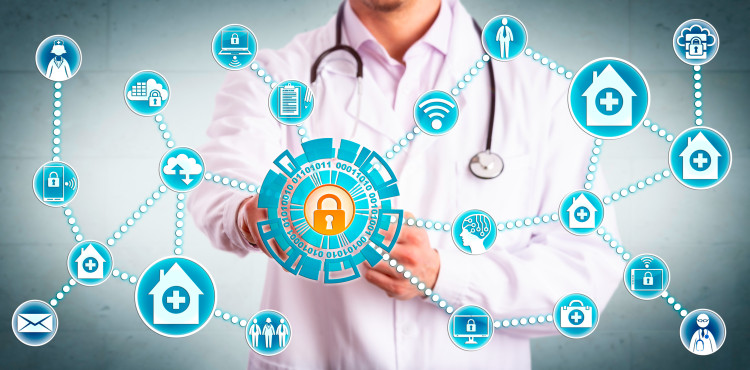Safeguarding Healthcare: The Vital Importance of Cyber security in the Healthcare Sector
Table of Contents
ToggleCyber security in the Healthcare Sector
In an increasingly digital world, the healthcare sector has experienced a significant transformation. The adoption of electronic health records (EHRs), interconnected medical devices, and telehealth services has revolutionized the delivery of healthcare, improving patient care and streamlining operations. However, this reliance on technology also introduces a new set of challenges, particularly in terms of Cyber security in the Healthcare Sector. The healthcare sector, with its vast stores of sensitive patient data, is an attractive target for cybercriminals. This article delves into the critical importance of cyber security in the healthcare sector, exploring the reasons behind the urgency for robust security measures.
Protection of Sensitive Patient Data
Patient privacy is paramount in healthcare. Electronic health records contain highly sensitive information such as medical history, diagnoses, treatments, and personal identifiers. If this data falls into the wrong hands, it can lead to identity theft, insurance fraud, or blackmail. By implementing robust cyber security measures, healthcare organizations can safeguard patient data, ensuring that only authorized personnel have access to it.
Prevention of Data Breaches
Data breaches in the healthcare sector can have severe consequences. Cybercriminals may infiltrate a healthcare network to access patient data, sell it on the black market, or hold it for ransom. These breaches not only compromise patient privacy but also undermine trust in healthcare providers. Moreover, the cost of remediation, including forensic investigations, legal expenses, and potential fines, can be financially devastating for organizations. Implementing comprehensive cybersecurity protocols minimizes the risk of data breaches and their subsequent fallout.
Protection of Medical Devices
The proliferation of interconnected medical devices, such as pacemakers, insulin pumps, and patient monitors, has improved patient care but also introduced vulnerabilities. Hackers can exploit these devices, potentially endangering patient safety or disrupting healthcare operations. Robust cyber security measures are crucial to protect medical devices from unauthorized access, ensuring their proper functioning and minimizing the risk of harm to patients.
Mitigation of Disruptions in Healthcare Services
Cyber-attacks targeting healthcare organizations can have far-reaching consequences beyond compromising data. Ransomware attacks, for instance, can paralyze critical healthcare services, leading to delayed patient care, cancelled procedures, or even life-threatening situations. By implementing cyber security measures like network segmentation, regular data backups, and incident response plans, healthcare providers can mitigate the impact of cyber threats and maintain the continuity of care.
Compliance with Regulations
The healthcare sector is subject to stringent data protection regulations, such as the Health Insurance Portability and Accountability Act (HIPAA) in the United States and the General Data Protection Regulation (GDPR) in the European Union. Compliance with these regulations is not only a legal requirement but also essential for maintaining trust with patients. Robust cybersecurity practices help healthcare organizations meet these compliance requirements, avoid penalties, and demonstrate their commitment to safeguarding patient information.
Safeguarding Intellectual Property
Cyber security in the Healthcare Sector is not limited to patient data protection. Healthcare organizations invest significant resources in research and development to advance medical knowledge and improve treatments. Intellectual property theft, whether it involves pharmaceutical formulas or innovative medical technologies, can undermine these efforts and impede progress in the healthcare sector. Strengthening cyber security measures helps protect valuable intellectual property from cybercriminals and safeguard the future of healthcare innovation.
As the healthcare sector continues to embrace digital technologies, the importance of cyber security cannot be overstated. The protection of sensitive patient data, prevention of data breaches, safeguarding medical devices, ensuring uninterrupted healthcare services, compliance with regulations, and safeguarding intellectual property are all critical reasons why cyber security is paramount in the healthcare sector. By prioritizing cyber security and adopting comprehensive security measures, healthcare organizations can effectively mitigate risks, protect patient privacy, and ensure the integrity of their operations, ultimately leading
Cyber security in the Healthcare Sector Cyber security in the Healthcare Sector Cyber security in the Healthcare Sector

